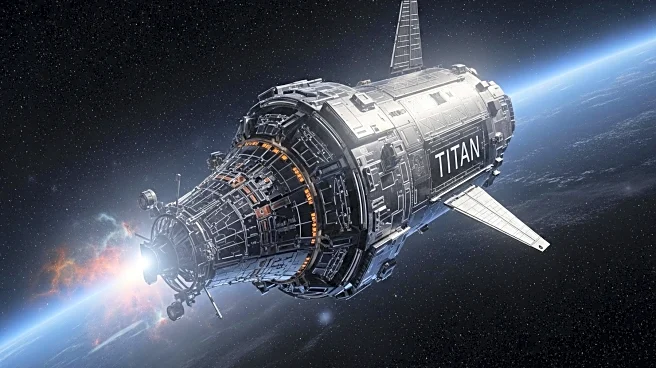What's Happening?
NASA's mission to explore Titan, Saturn's largest moon, has encountered delays and budget increases, according to a report by NASA's Office of Inspector General. Initially budgeted at $850 million, the mission's cost has risen to $3.35 billion, with the launch date pushed from 2026 to 2028. The report attributes these issues to management decisions rather than technical problems. The Johns Hopkins University Applied Physics Laboratory, responsible for developing the vehicle, faced funding shortfalls and was directed to undergo multiple mission replans.
Why It's Important?
The Titan mission is significant for its potential to uncover new insights about the moon's surface and atmosphere, which could inform our understanding of planetary systems and the potential for life beyond Earth. The delays and budget overruns highlight challenges in managing complex space missions, particularly in the context of the COVID-19 pandemic and supply-chain disruptions. These issues underscore the importance of effective project management and funding allocation in ensuring the success of ambitious scientific endeavors.
What's Next?
NASA will need to address the management and funding challenges to keep the Titan mission on track. The agency may need to reassess its priorities and resource allocation to prevent further delays. As the mission progresses, stakeholders will be watching closely to see how NASA navigates these obstacles. The successful launch and execution of the Titan mission could pave the way for future explorations of distant celestial bodies, expanding our knowledge of the solar system.










